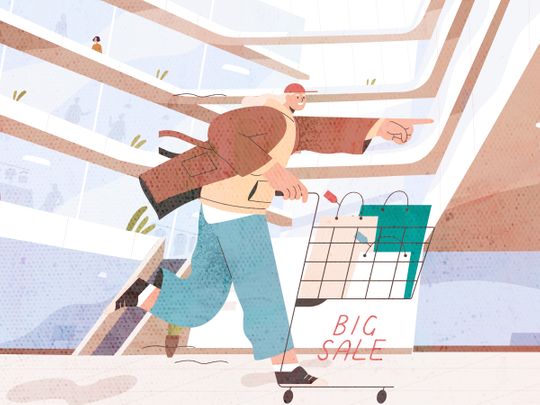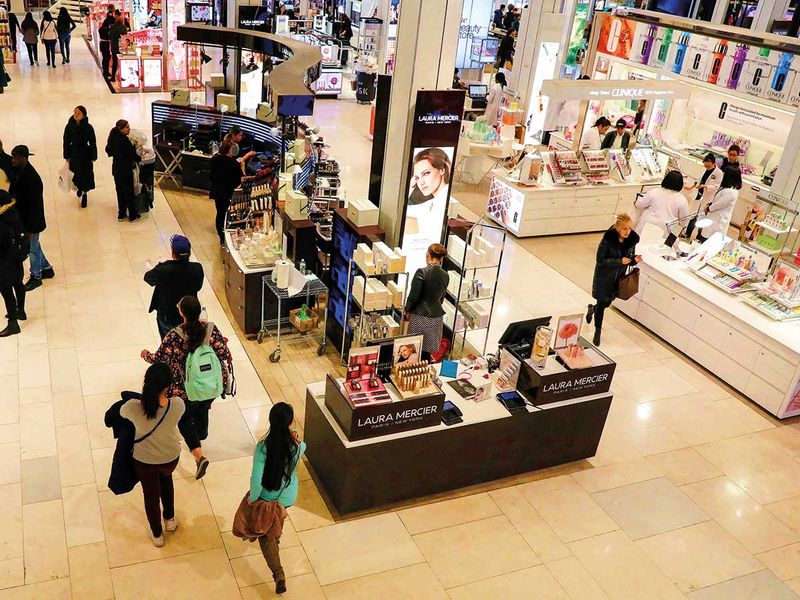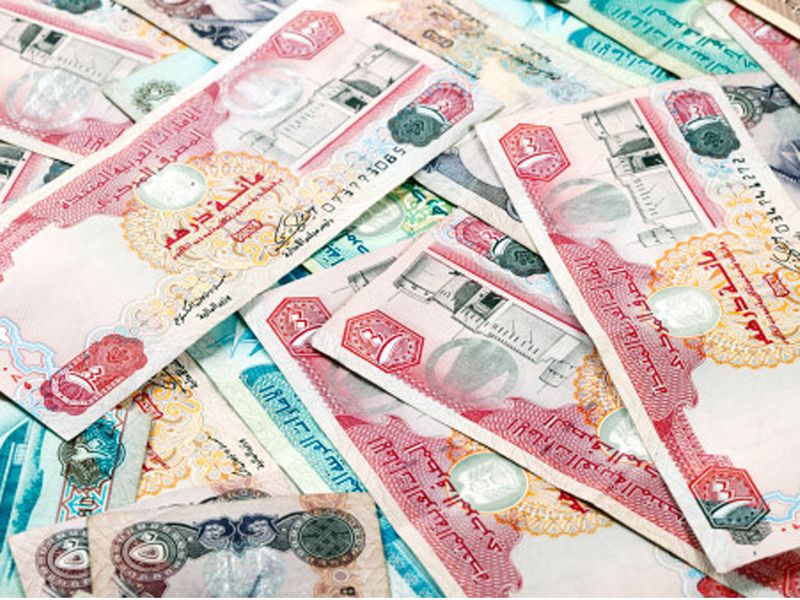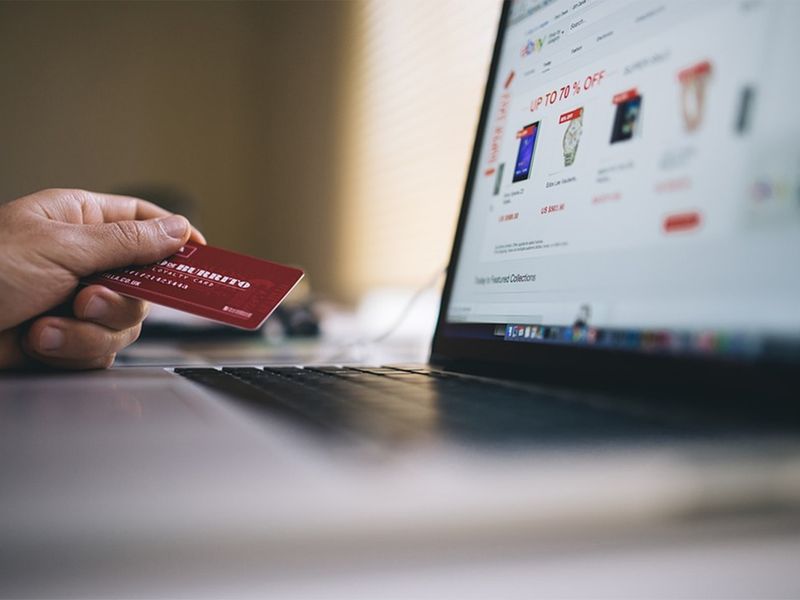
Dubai: Ever heard of revenge spending? It’s a natural phenomenon that occurs soon after a season of restricted spending. From shopping to travel, people are ready for what they missed during COVID-19.
With pandemic-induced restrictions easing, it's likely that you've had new spending needs: returning to work, visiting with friends and family, and partaking in other back-to-normal activities. And with the return of those activities comes a return to spending.
Pandemic savings trends revealed that some people – those not suffering from unemployment – have managed to save more money than ever during the recent months; still more have seen their monthly expenses drop during this time and may face a tough transition to post-pandemic budgeting.
Many experts attribute this drop in spending to a loss of opportunity or ‘opportunity cost’ (the financial loss of other alternatives when one alternative is chosen.)

There haven't been opportunities to spend money on travel, gatherings, meals out, entertainment, and the other discretionary expenses many people had pre-pandemic at the same scale, so it stands to reason that, when the opportunities return, so will spending – and with a vengeance, experts explain.
Savings soar during the pandemic
In several key global economies, nearly 80 per cent of survey respondents reported saving money in 2020. They achieved this by just by not going out to eat (average of $245 or Dh900 in savings), not going on vacation ($1,400 or Dh5,142 savings), and not making major purchases ($5,700 or Dh20,937 savings), research data show.
All that has the world population sitting on a whopping $1 trillion (Dh3.67 trillion) in excess savings. But with COVID-19 restrictions mostly lifted in several countries worldwide, there have been more opportunities to spend on items and experiences that you didn't get to enjoy early in the pandemic.

With the freedom to do more, consumers are spending more. For the first seven months of 2021, retail sales were up about 15 per cent compared to that same period in 2020, according to statistic data and Google trends seen in major global economies.
This post-pandemic overspending trend, like mentioned above, is called revenge spending. Revenge spending, when at a faster pace than your financial well-being, is risky as well.
Making up for what you missed out on?
Revenge spending is the money you shell out to make up for lost time, so to speak. It's the big vacation you book to make up for the trips you missed last year, or the new furniture you buy after getting rid of your old ones.
Retail experts predicted that customers will revenge spend by purchasing items and experiences they feel they were robbed of last year; in January, retail sales grew by 5.3 per cent after predictions had them growing by only 1.2 per cent.
As it has been the historical retail trend during crisis-like situations that hurt economies, during the pandemic, data showed that everybody saved more and spent less - and now everybody is spending more and saving less.

And while a little splurging after months of careful saving (or unwilling saving, because there wasn't much to spend on) is understandable, going overboard as a sort of self-comfort or revenge for everything you gave up in the last year can hurt you in the long run.
When looking at this another way, dinners out and movie tickets can seem pricey compared with a year and a half of home-cooked meals and whatever's on TV – especially if you experienced pandemic-related financial hardships.
So when the nonessentials threaten to put your finances in jeopardy, it's important to keep your financial goals on track.
Don't revenge spend everything away!
"Don't revenge spend everything away," multiple Dubai-based financial planners reiterate. Instead, start looking for ways to preserve the money you managed to save and maintain any good savings habits you've developed.
If you had money set aside for a vacation last year that you weren't able to use, go ahead and use that money for a trip later this year (if conditions permit).

However, advisors caution that you don't instead double the size and cost of your trip, and fight the urge to take twice as many vacations this year to make up for what you missed if doing so will dig into your savings. As we've learned during the pandemic, having a cash cushion in case of emergency is essential.
Struggling to resist the urge to book the extravagant summer vacation of your dreams? Experts further recommend a few tips to help you revenge spend responsibly.
The fear of missing out (FOMO) can influence how people spend their money and motivate them to buy things they can't afford. So if you feel peer pressure to spend in ways that are beyond your means, try thinking of cheaper alternatives to avoid overspending, advisors add.
Revenge spending isn't necessarily a bad thing
Revenge spending isn't necessarily a bad thing, but it can take over and wreak havoc on your finances: Stop it by planning ahead for some controlled and well-earned splurging.
According to the above-mentioned global studies pertaining to consumer and saving trends, nearly 80 per cent of the survey respondents want to continue to save more and spend less post-pandemic. So if you’re trying to avoid splurging post-pandemic, then keep on track by practicing ‘delayed gratification’.

Example of ‘delayed gratification’: Considering the 30-day rule
For large purchases, you may consider the 30-day rule, where you would give yourself 30 days to decide whether you should purchase the item. After the 30 days are up, you can decide whether you would still like to buy it.
Before you start your revenge spending journey, set limits for yourself. Also setting aside a certain amount of money to spend on whatever you wish, and both experts say creating a budget can help you stay away from overspending.
Key takeaway?
Revenge spending comes from this itch in your wallet that you feel like you’ve just got to scratch, explained world renowned financial planner Dave Ramsey.
It’s kind of like another feeling Ramsey coined a long time ago called ‘Stuffitis’. ‘Stuffitis’ is when you feel like you need to buy all of the stuff to make yourself feel better.
But splurging is not the best way to get vengeance on the pandemic for closing and cancelling everything and ruining all your fun, Ramsey further explains in his personal finance blog. “And the problem with revenge spending and Stuffitis is that neither will bring you long-term happiness.”
That being said, you’ve been through some hard times and you saved responsibly, so you should be able to buy some things that make you happy.
ALSO READ
- UAE: How your spending is aiding economic recovery so far in this pandemic
- UAE economy to rebound fully next year – How will this impact your routine finances?
- COVID-19: Why spending is essential to help return the UAE economy to pre-pandemic scale
- Spending increases in the UAE, giving the economy a growth boost






_resources1_16a30b358e0_small.jpg)

